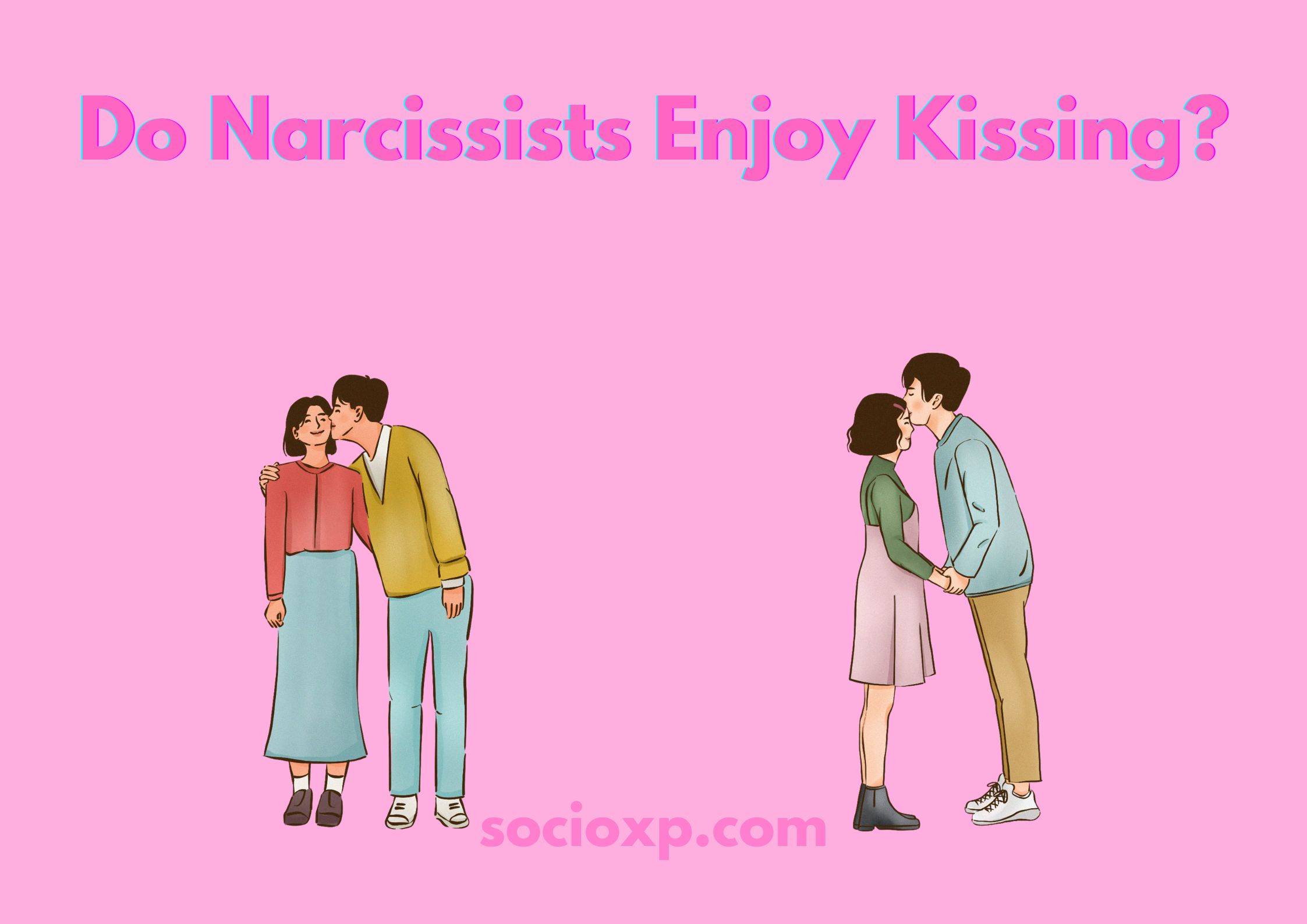The Inverted Narcissist: Traits that Describe Them
What is an inverted narcissist? Can narcissists be attracted to narcissists? Can a narcissist have a narcissistic partner? You might come across many individuals with narcissistic characteristics in your lifetime without you being aware of them. Can a narcissist in your life also affect you by implanting their narcissistic traits into you?
In some cases, it is observed that individuals that stay with narcissists, become co-dependents. Such co-dependents, indeed become narcissists after falling under their influence. Such codependents are known as “covert narcissists” “Inverted Narcissists” or “Narcissist-codependent”. Such individuals become a walking narcissist magnet due to their co-dependency on narcissists.

Inverted narcissists are such individuals that attract narcissists, for their codependency and thus they are emotionally dependent or emotionally clingy to the classic narcissists. Thus narcissists and inverted narcissists are more or less the same, hence codependent narcissists get the name “Inverted Narcisits”. Now to understand the codependency factor, let us understand more about co-dependents.
What is a codependent?
A codependent is a person who is someone who relies on another person for their emotional, physical, and psychological well-being. They constantly attract what they seek. And thus they have a difficult time maintaining and setting boundaries, or denying something or someone, and also take responsible decisions for themselves.
Sometimes a codependent may tend to prioritize other people’s needs over theirs and often feel responsible for other person’s happiness and well-being.
They might think about other people’s needs first, and feel how they feel, so much that they might even ignore their own emotions. In many cases, they also struggle with low self-esteem, fear of displeasing or upsetting others, and a constant fear of abandonment. They constantly fear being left alone and hence they do everything to keep others pleased.
Co-dependents are usually clingy and might also tend to display some immature behavior. They might not be able to display enough maturity when you want them to be mature. This can damage their relationship with them. They are so used to their partners that they would be ready to take all the trauma, drama, manipulation, and abuse that might be inflicted upon them by their partners.
They would also be controlling just the narcissist, and their control may not seem the same as the narcissists but they would control others usually by playing the victim.

All about the Inverted Narcissist
Inverted narcissists display a concealed behavioral pattern of a covert narcissist, as compared to the classic narcissists, who might usually display the behavioral patterns of an overt narcissist, in most cases.
Individuals with covert narcissism do not display any symptoms openly but are closely associated with mental health issues in terms of anxiety and depression. Covert narcissists are totally the opposite of overt narcissists. Some peculiar traits of covert narcissists are, they can associate more with childhood trauma, they are introverted and shy, have low self-esteem, always need to play the victim, moreover are repulsive to criticism.
Overt Narcissists constantly try to prove their worth, thinking about how others think of them, proving their superiority over others, and much more. Some peculiar traits of Grandiose Narcissism are, aggressiveness, arrogance, constant need to gain attention, and most importantly they are self-absorbed. They are usually extroverted in nature.
Inverted narcissists might always think about other people’s needs first, and feel how they feel, so much that they might even ignore their own emotions. In many cases, they also struggle with low self-esteem, fear of displeasing or upsetting others, and a constant fear of abandonment. They constantly fear being left alone and hence they do everything to keep others pleased.
They are shy, submissive, and sensitive by nature, but they do possess this irresistible charm, that they use to attract the person; usually, a classic narcissist in most cases, as inverted narcissists choose the classic narcissists who are extroverts and outgoing which are the usual behavioral patterns of grandiose or an overt narcissist for their co-dependency.
Inverted is usually a person who is either raised by a narcissistic parent or is constantly in contact with a narcissistic person, due to which they have learned to provide the “narcissistic supply” to them. They have become the experts in providing or becoming the source of narcissistic supply, which is enough to attract narcissists to be codependent. Inverted narcissists are introverted, yet they are charismatic, charming, and manipulative.
Signs or Traits of an Inverted Narcissist

Being overly Sensitive
Inverted narcissists are often too sensitive to other people’s needs. They are easily hurt emotionally and may also take things personally. They find it difficult to face criticism and negative feedback, due to their nature of taking things personally.
They may constantly feel that they are not enough to be loved or be attracted, they are not good enough for their partner, and they constantly feel that they are not enough for others.
Co-dependency
Inverted narcissists are usually clingy and might also tend to display some immature behavior. They might not be able to display enough maturity when you want them to be mature. This can damage their relationship with them. They are so used to their partners that they would be ready to take all the trauma, drama, manipulation, and abuse that might be inflicted upon them by their partners.
They constantly feel that they need to make their partners or others happy. This trait may hinder their well-being as they are constantly being taken for granted by others. They are often being taken advantage of by others.
Extreme shyness
Narcissists are very shy by nature hence they get awkward while having social interactions. They may often feel alone, isolated, and left out due to their shy nature. Their introverted nature can make it difficult for them to express their feelings or thoughts.
Depression
Depression often leads inverted narcissists to feel hopeless and helpless as they constantly feel they are not worthy enough. Due to their state of being depressed, they may lose interest in their day-to-day activities or the things they used to enjoy.
Loneliness
As inverted narcissists might be a victim of loneliness, due to their introverted nature. They may also avoid meeting new people due to their hesitation in social interactions.

Social Withdrawal
Inverted narcissists are socially withdrawn individuals, as they feel they might not fit in with people. They might constantly think about what would others think of them and thus they would be socially withdrawn.
Difficulty saying no
An inverted narcissist is someone who relies on another person for their emotional, physical, and psychological well-being. They constantly attract what they seek. And thus they have a difficult time maintaining and setting boundaries, or denying something or someone, and also take responsible decisions for themselves. They simply cannot say no to others.
Sometimes a codependent may tend to prioritize other people’s needs over theirs and often feel responsible for other person’s happiness and well-being.
Difficulty setting boundaries
Inverted narcissists always put people’s needs first, and thus they often end up crossing personal boundaries more than often. They have a tough time asserting themselves and thus have difficulty saying no and maintaining their own boundaries.
Enabling and Granting Behavior
As they are constantly dependent on others to be happy and feel fulfilled, inverted narcissists have a good tolerance for bad behavior or even such actions that may be destructive for themselves. They even have a tolerance for substance abuse and hardly are able to say no destructive behavior that may even harm them physically, emotionally, and mentally.
Low self-esteem
Such narcissists often lack self-worth and thus this results in low self-esteem. They usually seek validation from others and hence have low self-worth.

Need for control
Inverted narcissists have a stronghold for having control but in a different way. They want control to control their surroundings and environment to feel safe.
A constant struggle to regulate emotions
Inverted narcissists have a real struggle to express their real expressions and emotions, and thus they always end up fulfilling and bearing other people’s emotional needs more than their own.
Causes of Inverted Narcissism
There are not many rooted answers for the causes of Narcissistic Personality Disorder, but according to many researches and analyses provided by psychologists, therapists, mental health and psychology experts, there are a few known key factors that can be the causes of Narcissistic Personality Disorder.
- Heredity
- Brain Mutations
- Genetic transmission from parents to offspring
- Parenting flaws
Often it is observed by mental health experts, that the children raised by narcissists have childhood trauma, which affects their upbringing and also makes the same or even more narcissistic than their parents. Children learn from their parents, so parents would only be passing on narcissistic traits to their children as an inherent quality knowingly or unknowingly, willingly or unwillingly, by choice or without choice. Unless they are guided toward what is right, instead of toxic behavior, there is no way a child will not learn all those narcissistic traits possessed by their Narcissistic parents.
The causes of narcissism may vary for different individuals. It is usually caused by emotional neglect, psychological trauma, neglected childhood, or any sort of traumatic event.
Final Thoughts
Inverted narcissists are such individuals that attract narcissists, for their codependency and thus they are emotionally dependent or emotionally clingy to the classic narcissists. Thus narcissists and inverted narcissists are more or less the same, hence codependent narcissists get the name “Inverted Narcisits”.
- How To Make A Narcissist Discard You And Leave You Alone? - March 21, 2024
- Narcissistic Supply: 9 Signs You May Be Someone’s Narcissistic Supply - March 11, 2024
- Narcissistic Abuse And Anxiety – 11 Symptoms of Narcissistic abuse-induced anxiety - March 9, 2024


